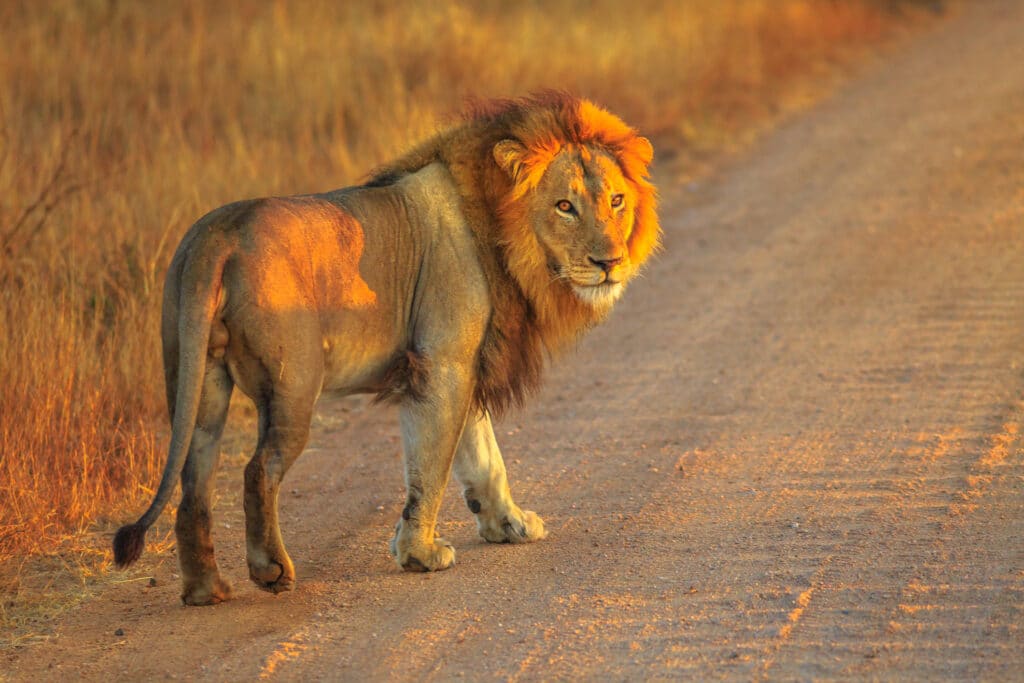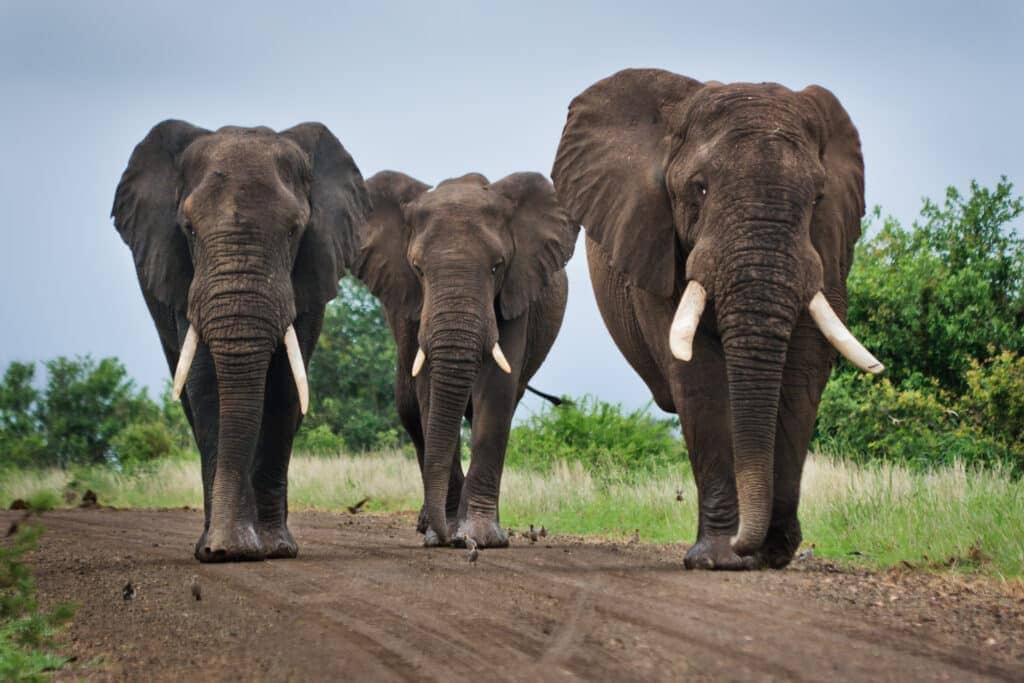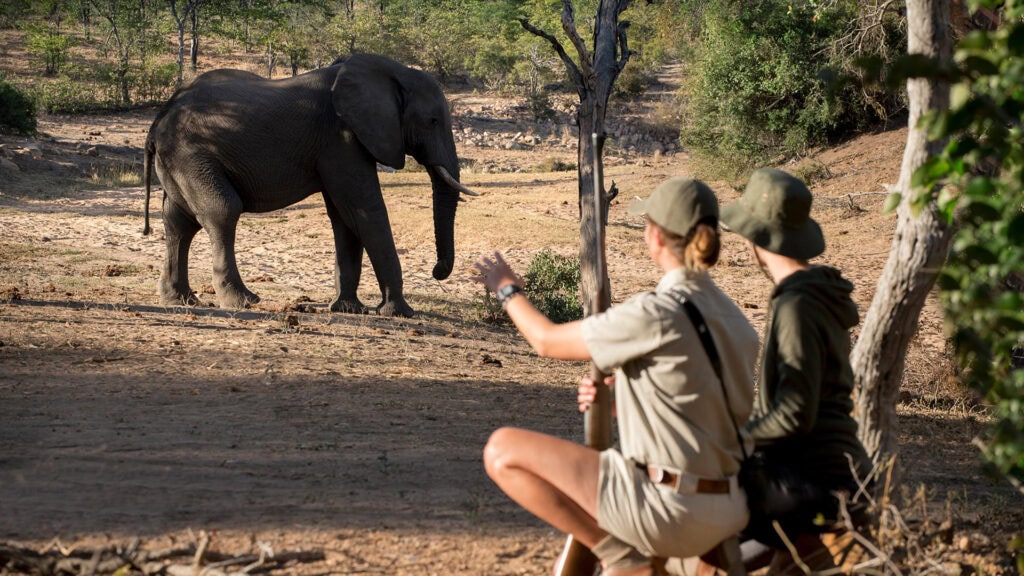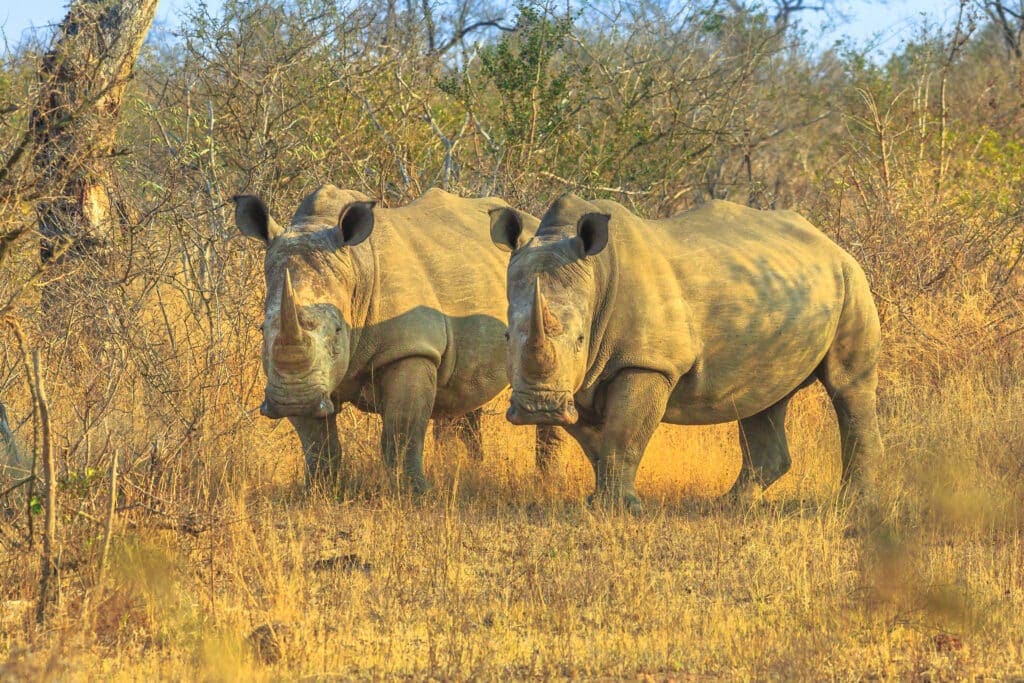The Kruger National Park, established in the 1920s, is the largest national park in South Africa and a breathtakingly beautiful wildlife sanctuary. It’s a place where the beauty of nature comes alive, attracting both local and international visitors repeatedly.
Nestled between the Limpopo and Mpumalanga provinces and bordering Mozambique, the park is a treasure trove of biodiversity. It is home to the famed Big Five (lion, leopard, rhinoceros, elephant, and Cape buffalo), various other wildlife, and a rich assortment of flora.
The park’s expansion over the years has included numerous private reserves and concessions on its outskirts, significantly enhancing the safari experience available to visitors.
Technology and Connectivity in the Wilderness
The Kruger National Park offers a pleasant surprise for those who can’t part with their gadgets. While the park is a natural wilderness, it hasn’t remained untouched by technology.

Most areas within the park have mobile coverage, with rest camps and private lodges providing the strongest signals. However, it’s important to respect the tranquillity of the wildlife setting; thus, mobile phones are restricted on game drives to prevent disturbing the animals.
Water Quality Concerns
Concerning hydration, the Kruger National Park takes the health of its visitors seriously. While tap water is generally safe to drink, for those who prefer it, bottled water is readily available in all rooms and can be purchased at shops throughout the park.
Malaria Precautions
The Kruger National Park lies in a malaria-prone zone. Although incidents are relatively rare, awareness of the high-risk periods, especially during the wet season from October to May, is crucial.

The peak risk occurs from February to May. Visitors are advised to consult a healthcare provider for appropriate malaria prophylaxis and should start the medication about a week before their trip.
Mosquito Protection Measures
Most private lodges in the park provide mosquito nets alongside other preventive measures like sprays, creams, coils, and plug-in dispensers. For campers, portable travel nets are available at outdoor and sports stores. Additionally, wearing clothing that covers extremities at night and regularly applying repellent is advised to minimise the risk of mosquito bites.
Safety Amongst Wild Animals
Safety in the Kruger Park is a top priority. The park ensures this by having gated and fenced camps, which prevent wildlife from entering human settlements. While baboons and monkeys are common in most camps, they typically keep a safe distance.

Adherence to the park’s safety guidelines ensures your stay is enjoyable and secure. Nighttime in the camps is especially enchanting, as you can move freely in a safe environment, adding to the allure of the Kruger Park experience.
Pregnancy and Safari Considerations
Due to the malaria risk, pregnant visitors are advised to consider other wildlife destinations in South Africa. The country offers many malaria-free parks and reserves, ensuring a safe and enjoyable bush experience.
Understanding Conservation Fees
Visitors to Kruger National Park contribute to its upkeep and conservation through mandatory conservation fees. These fees, paid per day of stay, go towards preserving the park’s natural, historical, and cultural heritage.

They also support the maintenance of facilities like viewing hides, water supplies, and watering holes. Conservation fees can be paid at the gate upon arrival, or they can be included in the cost of a safari package.
Pet Policies and Guide Dogs
The Kruger National Park adheres to strict regulations regarding pets to ensure the safety of both animals and visitors. Only guide dogs are permitted, and the necessary permissions and paperwork must be arranged in advance. No other animals are allowed in the park.
Self-Drive Speed Limits
For those opting for a self-drive safari, the park imposes speed limits to ensure safety and optimal wildlife viewing. The maximum speed is 50 km/h on tarred roads, 40 km/h on gravel roads, and 20 km/h in rest camps. An average 20-30 km/h speed is recommended for the best game viewing experience.
Feeding Wildlife and Poaching
Feeding animals in the park is strictly prohibited. This rule helps maintain the natural behaviour of wildlife and ensures visitor safety. Violators face significant fines. The park also takes a firm stance against poaching, particularly of rhinos.

Visitors are encouraged to report any suspicious activities to park officials or accommodation managers.
Tour Options in Kruger
The Kruger National Park offers diverse tours to suit various preferences. Options include combining a Kruger safari with visits to other countries or experiences within South Africa.
While the national park has its activity limitations, neighbouring private reserves and concessions offer a broader array of experiences. Discover Africa can help you tailor your safari to your interests.
Author: Megan Warrington
Published:
Last Update:
Part of the Kruger National Park Safari, Big Five Safaris, Big Cat Safaris & Luxury Safaris Collections